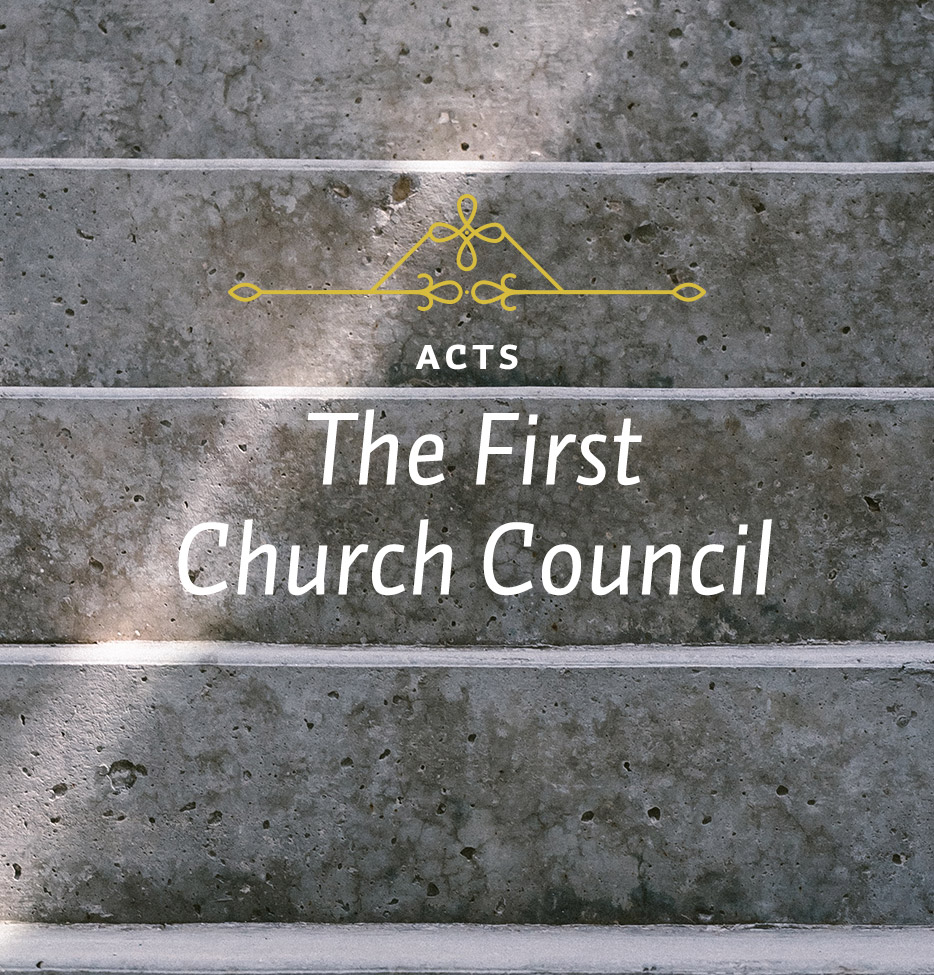The hardest of all ideas for human beings to grasp is the doctrine of salvation by grace alone. This is because we all always want to add something to it. This is a serious matter, because if a person is trying to add anything to the work of Christ for salvation, that person is not saved and is operating under a fatal misunderstanding. We are aware of how this error is expressed. People will say, “Of course, you need the grace of God to be saved. No one can save himself. But you still have to do something.” Some would say that this extra something is baptism. Some would say that this extra something is belonging to a particular church. Others want to add good works or some ecstatic spiritual experience.
In the early years of the church the details of this controversy were different, but the issue was the same. The first believers were Jews. They had grown up in Judaism and were attached to their traditions. They thought that there were certain things that you just had to do to be saved. These early Christians would have said that it is indeed wonderful that Jesus, the Messiah, has come. It was what Jews had been anticipating for centuries. They would even have confessed that Jesus died for their sin. Yet they would also have said that no one can be saved without being a Jew first of all. What is more, they believed that the door to Jewishness is circumcision.
In the early days the convictions of these Jewish traditionalists were not so serious a problem, because there were not many Gentiles. But as the size of the Gentile church grew it became increasingly problematic for those in the Jewish tradition that these Gentiles were not rejecting their Gentile background in order to become Jews but rather were continuing in the church as Gentiles. And nobody was telling them that in order to be Christians they had to keep the law of Moses.
Jewish believers became increasingly troubled about what was happening, and Gentile believers were not resolving the problem by taking on the yoke of Judaism.
Acts 15 tells us what the church did to solve this mounting difficulty. They called a council. The Protestant Reformers wisely and insistently pointed out that councils have erred and do err. As a matter of fact, probably even this council made mistakes. God blessed it nevertheless, as He has often done with the formal meetings of sinful human beings who nevertheless gather to seek God’s will in a matter. The leaders of the church realized that they were dealing with an important matter. So they said, “Since this affects the very essence of the Gospel, we need to discuss this matter with great care. We need to pray about it and seek the mind of God.” Among the representatives from the various churches that were called to meet together were Paul and Barnabas.
The thesis to be argued is stated very clearly by Luke, because he wanted his readers to understand precisely what the issue was. It is presented twice. Verse 1 states: “Unless you are circumcised, according to the custom taught by Moses, you cannot be saved.” The second statement is in verse 5: “The Gentiles must be circumcised and required to obey the law of Moses.”
To make sense of this debate we must understand the precise nature of the issue. The issue was not whether Gentiles could be saved. I have made this point several times before. Everybody knew they could be. Down through the history of the Old Testament there were Gentiles who were saved.
Although Gentiles were saved in the Old Testament period, however, they were saved as Jews. The question before the Jerusalem council, therefore, was not whether Gentiles could be saved but whether, in order to be saved, they had to become Jews first or along with their conversion.
That is why the focal point of the debate was circumcision. The rite signified incorporation into the covenant people of Israel and, in conjunction with that, the taking upon one’s self the observance of the law. Every Jew understood the keeping of the law to be his divine responsibility. Peter refers to it as “a yoke” put upon one’s neck (v. 10). To argue that the Gentiles had to be circumcised to be saved meant that they had to take on the burden of the law as the Jews understood it. They had to observe the Jewish feasts, dietary and other laws, and the Pharisaic interpretation of the Decalogue.






